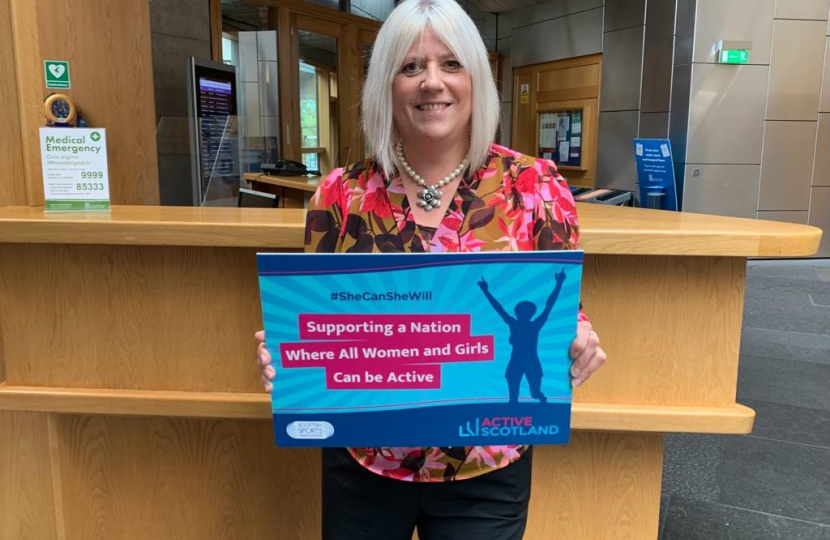
What a weekend it was for Scottish women’s athletics, with Laura Muir winning a record fifth European Indoor Championship title and Eilish McColgan setting a new British 10,000m record.
What fantastic role models they are for young Scottish women, Laura’s 1500m triumph making her the most successful Briton in the history of the competition and Eilish beating Paula Radcliffe's time which has stood for over 20 years.
The dedication and determination they have shown on and off the track is truly inspiring, and coming just ahead International Women’s Day their victories couldn’t have been better timed.
Women still face discrimination and inequality in many aspects of their lives, including access to education, employment, and this year’s focus was on examining why equal opportunities are not enough. So much of the issue lies with expectation and presumption, and the experience of so many girls at school is an assumption that a significant number aren’t really that interested in sport, so it doesn’t matter if opportunities and facilities are limited.
But things are changing; women’s club football is a regular feature on television, the games feature on national news, and sportswomen are now getting equal billing as pundits for male team sports, not just rolled out for Wimbledon. Coverage of women’s rugby and cricket, the latter now on an equal footing with short versions of the game, mean women’s sport has never had a higher profile.
To mark International Women’s Day, the UK government announced a plan to guarantee equal access to sports in English schools, with the same sports offered and a goal of a minimum two hours of curriculum PE backed up with £22 million for two years of further funding for the School Games Organiser network.
Up to £57m will be spent on opening more school sport facilities outside of school hours to give more opportunity for girls, disadvantaged pupils and those with special educational needs.
Higher visibility for female athletes, better facilities and peer group encouragement will make all the difference in producing the next generation of Laura Muirs and Eilish McColgans, and never again should future Rose Reillys have to pretend to be a boy and then head to Italy to play a decent standard of football.
But the Scottish Government needs to follow the example and put sport and exercise at the heart of the curriculum. It’s not just to produce superstars, but to improve the nation’s health and to spread the social good being involved in positive, collaborative activities into all aspects of our lives.
As a former hockey player and still an occasional umpire, sport has given me a network of good friends and contacts I otherwise might never have had, and our schools could do more to promote the wider benefits of sports participation.
However, there are warnings. The proven physical differences between men and women mean it is dangerous to expect women to play like men. Women are more vulnerable to serious head injuries in contact sports, and we know enough about the impact of repeated concussions on men that a dementia epidemic amongst female footballers and rugby players can and must be avoided.
It also means that biological males can have no place in women’s sports otherwise the goal of true equality, now within our grasp, will be lost.

